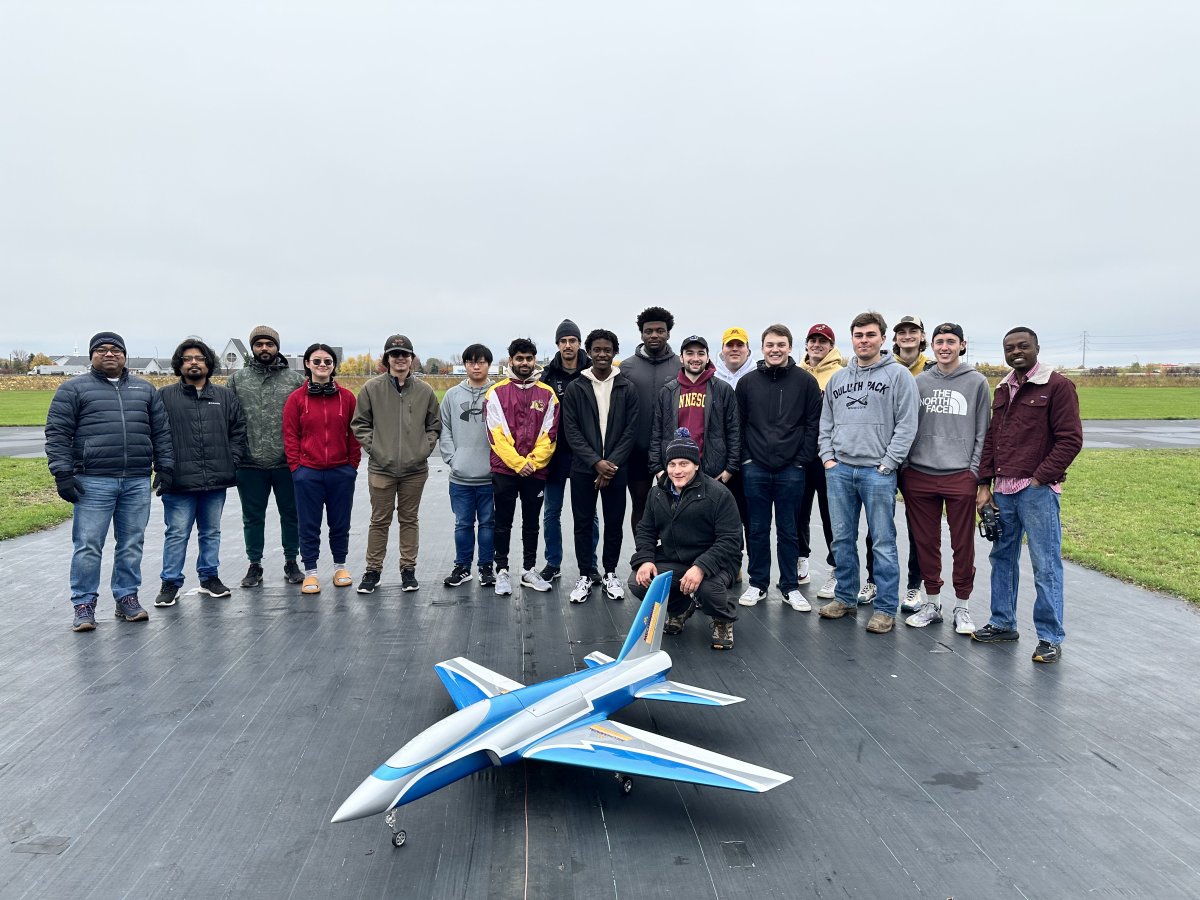Innovative “OpenSky” Midterm Takes Flight: UMN ME Students Pave the Way for Sustainable Aviation

Sustainable aviation fuel (SAF) is soaring into the future of aviation, and at UMN ME, students are at the forefront of this exciting transition. In a groundbreaking hands-on midterm experience, seniors in the ME4431w Energy Conversion Systems lab course, led by Assistant Professor Sayan Biswas, took to the skies to test SAF blends in a gas turbine-powered RC airplane. This is no traditional "open book" test — it's an open sky test!
Divided into two enthusiastic teams, students embarked on a mission to craft the ultimate SAF blend, aiming to maximize fuel efficiency, performance, and cost-effectiveness. The friendly competition added an extra layer of motivation, with each team bearing the name of an aviation trailblazer.
Team Earhart, a nod to the iconic Amelia Earhart, the first woman to complete a solo flight across the Atlantic Ocean in 1932, sought to live up to her pioneering spirit.
Team Coleman, paying tribute to Bessie Coleman, the first African-American and indigenous woman to earn a pilot’s license and a pioneer in her own right, was equally determined to succeed.
The students’ challenge didn’t involve traditional pen-and-paper or "open book" tests; instead, they faced the exhilarating "OpenSky" midterm, a concept developed by Biswas. This hands-on approach put their engineering skills and critical thinking to the test, as they crafted unique SAF recipes, fueled up their aircraft, and took to the skies.
Guided by their instructor and three wonderful graduate TAs — Binit Singh, Daipayan Sen, and Oluwasegun Alagbe — the students piloted their creations, gathered data, and analyzed the results to determine the optimal SAF blend. This experiential midterm not only engaged the students but also stretched their problem-solving abilities, making it a memorable educational experience.
The success of this unique endeavor was made possible thanks to the collaboration of various stakeholders. Michael Danielson, a professional licensed RC plane operator and commercial pilot, brought his expertise to the project, ensuring the safety and precision of the airborne tests. Additionally, the MSP airport authorities provided the jet fuels necessary to create the SAF blends, highlighting the importance of industry partnerships in advancing sustainable aviation.
As the aviation industry looks toward a more sustainable future, these students are leading the way, demonstrating that the sky is no longer the limit when it comes to innovative and hands-on learning experiences. The sky’s the starting point for these trailblazing engineers, and their journey is just beginning.